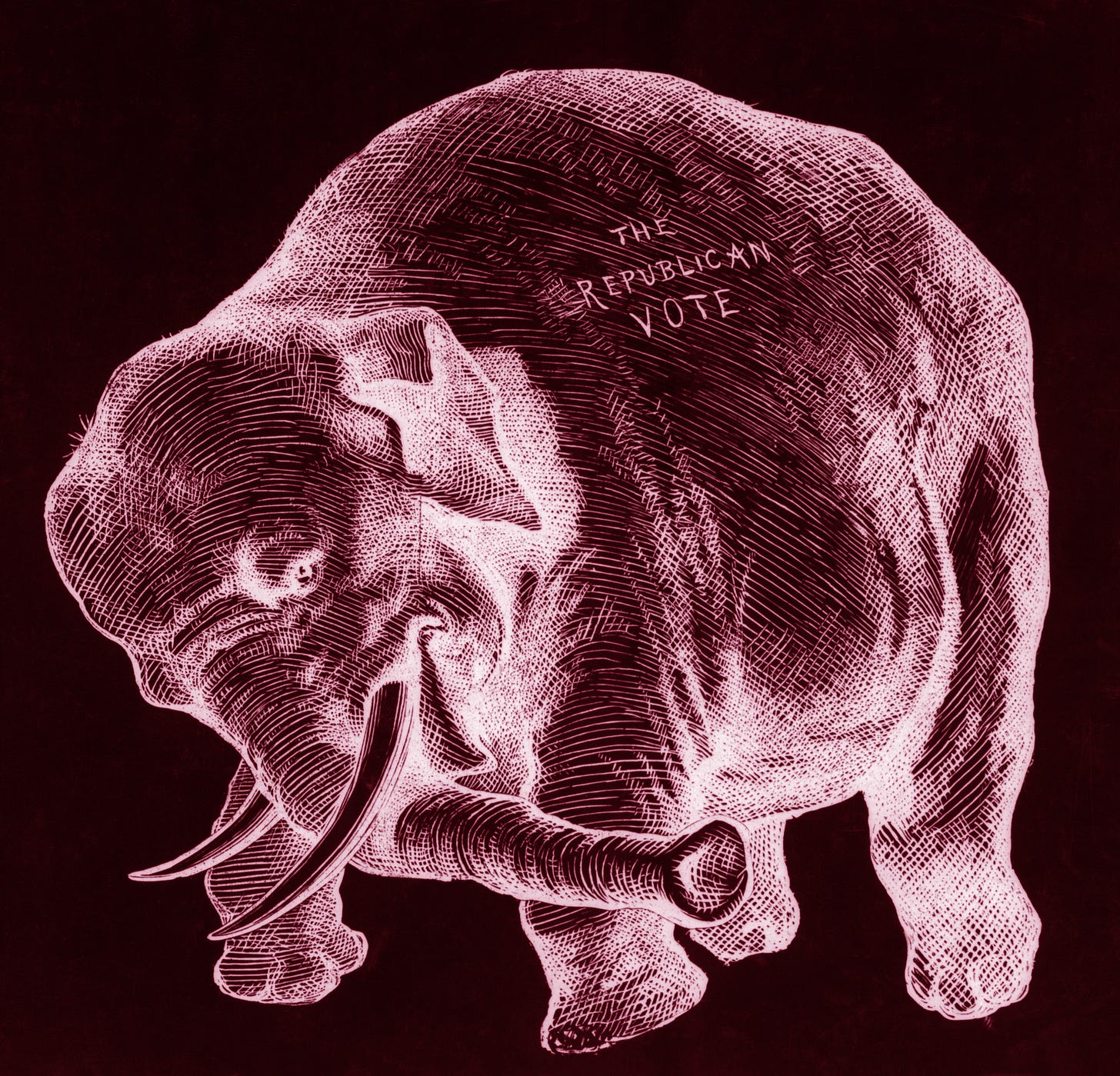Recently in The Bulwark:
BILL KRISTOL & ANDREW EGGER: Massacre on Mass. Ave.
Marc Caputo: Trump Allies Believe Kellyanne Conway Is Badmouthing JD Vance
Overtime is for everyone. If you’re a subscriber: thank you. If you’re not, there’s no better time to subscribe to Bulwark+ than today. If you like today’s issue, you can share this newsletter with someone you think would value it.
Nicholas Grossman: Has the New Right Already Peaked?
But they may soon become victims of their own success: Both the recent changes at X (Musk’s new name for Twitter) and the choice of Vance as a running mate illustrate problems for Trump’s coalition that could hobble his campaign for the presidency.
The problems start with the New Right’s basic understanding of reality. The movement’s worldview rests on an insane theory of power: Members of the New Right unironically believe that American institutions are dominated by radical leftists who use their power and positions of influence to force their beliefs on an unwilling populace while suppressing dissent.
A weirdo from the internet named Curtis Yarvin calls this imaginary arrangement “the Cathedral.” Yarvin is a self-described “neo-reactionary” and “monarchist,” and he makes no secret of his hostility to democracy. I wouldn’t bother naming him—why elevate cranks?—but JD Vance refers to him as an influence, so the elevating has already been done. Vance and Yarvin have been friends for years, and both are also close to Silicon Valley billionaire Peter Thiel, Vance’s former employer, who has bankrolled the senator’s political career.
Cathy Young: JD Vance’s Dog Whistles About Cat Ladies
In an attempt at damage control this week, Vance went on Megyn Kelly’s show. He presented a kinder, gentler, even more feminist JD Vance who reminded Kelly and her audience that, far from wanting to “keep women in the home,” he is married to a career woman and deeply sympathetic to the struggles of working moms. He lamented that “that the corporate world is fundamentally hostile to working mothers and working fathers because we have made stupid and bad choices as a country”—an assessment with which, no doubt, many liberal Democrats would agree. But he also dug in his heels on the “cat ladies” comment, which he dismissed as mere “sarcasm” (and added the disclaimer that he has nothing against cats, as if that were the issue) while insisting on the basic truth of what he said.
And what is that truth?…
🎥 PODCASTS AND VIDEOS 🎧
Bulwark Podcast with Tim Miller: Fred Trump and Will Saletan: An Alpha Emerges
The Next Level: The Trump Campaign Implodes and Veepstakes
Did you know? Bulwark+ members can listen to an ad-free version of these podcasts on the player of their choice.
Learn more at Bulwark+ Podcast FAQ.
📣Bulwark+ members can now listen to ad-free podcasts on Spotify! Learn more here.
Lindsay Chervinsky & Sarah Longwell: What History Tells Us Might Happen to the Republican Party
Strong political parties contain multitudes. They are able to unite moderates and hard-liners in the same tent, protecting diversity of opinion. There are a few ways this strength plays out in practice: The party apparatus prevents primary challenges to their incumbents from more extreme candidates. Party leadership allows compromise and cooperation with the opposing party to ensure bipartisan legislation. And they permit vulnerable members to break ranks with the party to protect their seats. Strong parties also weed out unacceptable candidates to protect the future health of the party and prevent minority factions from seizing control of the entire operation.
Until recently, the Republican party displayed all of these tendencies. It discouraged primaries against experienced legislators. President Ronald Reagan and Democratic Speaker of the House Tip O’Neill famously compromised on budgets and Social Security. Senator Bob Dole, a fierce partisan and the party’s 1996 presidential nominee, was a lead sponsor of the Americans with Disabilities Act, campaign finance reform, food stamp legislation, and Voting Rights Act extensions—all bipartisan bills. And Republicans used to prevent extreme views from dominating the party. In the 1960s, William F. Buckley Jr. and Sen. Barry Goldwater worked to purge the John Birch Society from the party and the broader conservative movement, rejecting its conspiracy theories and fascist tendencies. As recently as 2019, the GOP punished members for unacceptable positions, including stripping Rep. Steve King of his committee assignments for white-supremacist statements.
But since 2008, the party has witnessed a spike in primary challenges, often from inexperienced candidates touting their “outsider” status. (The Democratic party has also witnessed primary challenges, most notably Alexandria Ocasio-Cortez’s successful primary challenge of Democratic Caucus Chair Joe Crowley in 2018, but at a far lower rate.) Bipartisanship is discouraged to the point that it can end careers, as Sen. James Lankford discovered after his party turned on him for negotiating an immigration reform bill. And formerly fringe elements are now the beating heart of the GOP.
Weak parties eat their own. They devolve into intraparty squabbles, turning their most vitriolic rhetoric on members of their parties deemed “squishy” or insufficiently loyal. As a result, their coalitions often shrink over time, accelerating the radicalization process in a partisan doom-loop.
🚨OVERTIME🚨
Happy Wednesday! Jim is moving house today. Wish him luck.
Tech support questions? Email members@thebulwark.com. Questions for me? Respond to this message.
—30—
Editorial photos provided by Getty Images. For full credits, please consult the article.







